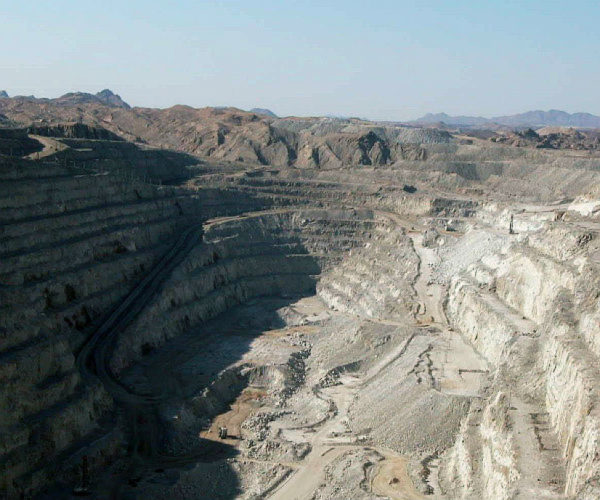





Massimo A. Alberizzi and Monica A. Mistretta
Milan, May the 2oth 2020
Italy did not pay the ransom for Silvia Romano’s release. The money was released by Qatar in a triangulation of dollars, weapons, political guarantees and above all uranium. In addition to the small Gulf country, an intrigue involving Turkey, the United Arab Emirates and Iran. The young volunteer (who, we repeat once again, must be left alone after her terrible experience) found herself, unwillingly, at the center of an international intrigue that forced her to remain prisoner for 535 days.
Probably she could have been freed earlier, if in Italy the case had been treated with foresight and wisdom. And if anyone had taken into consideration the fact that the Al Shebab are not a homogeneous group of guerrillas with a leader and a politbureau who elaborate a political-strategic direction and give orders and commands. On the contrary, they are entities, that is cells, separated from each other, very often without any control: more bandits and common criminals than terrorists with a clear objective. However, there is a sort of board of directors, a kind of central holding company that enjoys a certain influence on the scattered groups.
Immediately after the kidnapping, during our investigation in Kenya to understand what had happened to Silvia, one of the sources answers a question to Africa ExPress on the real capabilities of Italian intelligence in the Horn of Africa: “In Eritrea, Ethiopia, Libya, and Somalia we were the strongest. Our network has been dismantled, destroyed and now in those areas China, Turkey and the Emirates count. By now our role is reduced to looking for a partner who is connected and asking them to work for us. Then we will pay what is due. The head of our intelligence organization has instead turned to business, that is to sell weapons around the world. ”
In fact, during our investigations we did not meet any from the Italian intelligence on the ground. But the area is full of American informants, who in the Kenyan region where Silvia was kidnapped – near Lamu -, have a small but efficient military base. Would you not expect to see an American spy in every village ready to monitor the moves of any terrorist?
In fact, Africa ExPress receives a tip: “Silvia is held captive in Somalia in a village in the area behind the port city of Kisimaio.” In vain we ask for proof of the existence of the girl alive – a photo, an audio, a video..nothing is sent. We write that she could also have been brought to the Bajuni islands, an archipelago facing the Somali coast, or to any village, but we are convinced that, in spite of those who swear that she died, she is still alive, otherwise in Africa nobody would have been able to keep the news of her death secret.
Just under a year has passed since Silvia’s kidnapping and the Italian authorities have no idea where the girl was taken. This is why they entrench themselves behind the strictest confidentiality: not for fear of harming her safety (official motivation) but for two reasons. The first is that they do not know whether she is alive or dead and the second to have complete freedom in the event of any negotiations, not only on the financial level (payment of a ransom), but also on the political level (transfer of war material or release of prisoners).
Public opinion sleeps as newspapers speak about the story sporadically but, at this point, after the letter from Africa ExPress to Giuseppe Conte, the night between December 31 and January 1 last year, some of the Italian secret services turn to their colleagues from the United Arab Emirates who built an important network of informants in Somalia. Abu Dhabi responds more or less like this: “We are able to search and find the young woman and we will help you, but on condition that you change alliance in Libya. Stop supporting the Al Serraj government. Instead, support General Kalifa Haftar with us. ” A request that is too complicated and difficult for Italy to change alliances, especially for business (read arms supplies) concluded with Qatar, Turkey and Iran, the allies of the Libyan president. After all, what is the life of a young girl compared to the lucrative business for billions of Euros?
The Americans know where Silvia is, but they don’t want to or can reveal it. But they advise: “Turn to the Turks, who have a conspicuous presence in Somalia”. Ankara’s response is positive on condition that Rome cease attacks on Erdogan, considered a dictator who violates human rights and throws journalists in jail, and increases support for Serraj in Libya. Turkey in Somalia has a military contingent, but the intelligence network is rather scarce.
Here is where the kidnapping of Silvia enters an international game that deserves the most complete reserve. The Italians do not intend to pay any ransom. Salvini is still very strong (we are before the Covid-19 crisis) and you know the chaos that would unravel if it came out that Rome paid millions of dollars to the kidnappers.
However, help can be sought from Qatar, which has created a remarkable network of informants in Somalia. Ally of the Turks and Italians in Libya, a friend of Iran, with whom Rome has excellent relationships (see the flights that in the midst of the health crisis Covid-19 continue to connect Tehran to Malpensa), Doha immediately appears as an excellent ally to save the situation. And then Qatar has just ordered Leonardo (the old Finmeccanica) war material for over 5 billion euros and Fincantieri must deliver military boats for about four billion euros. But there is also another small, yes significant, detail: General Luciano Carta, head of the AISE (External Information and Security Agency, read secret services) from the 20th of May will take the place of President of Leonardo.
He is the one who directly contacts Doha. To seal cooperation with Italy, President Sergio Mattarella flies to Qatar in mid-January and Luciano Carta is on his plane. They meet the Qatari head of state. But what does Sheikh Tamin bin Hamad al-Thani Emir of the small Arab country ask in return? Qatar has long had its hands in Somalia on the uranium mines in the two central regions of Mudug and Galgadug (now united in a political entity, the Galmudug), inhabited by the Haber Gidir clan and in particular by the subclan Aer, which represents the backbone of Al Shebab.
In exchange for free access to the uranium mines, Sheikh al-Thani is willing to give his help and involve the central core of the Shebab holding (with whom he has good relations) for the release of Silvia. Al-Thani then counts on the fact that the orders with Fincantieri, Fimeccanica, Beretta are in the pipeline. The Italians, therefore, must be helped without problems.
Deal made therefore and apparently no one asks the question of where that uranium will end once extracted. Qatar has no nuclear power plants, nor does it intend to manufacture a bomb but is an ally of Iran and Tehran is frantically searching for the precious metal needed to implement its peaceful nuclear program, as claimed by its government or military program, as the American administration suspects.
It is only at this point that the Shebabs come into action, the real ones, not those common criminals who have little to do with terrorists and who kept Silvia prisoner. With them begins the real negotiation conducted by the Qatariots, who do not take long to involve the leaders of the terrorists who in turn convince their friends to release the captured girl, in exchange for a nice pack of dollars, but a little less of the 4 million publicized by everyone in Italy.
And when Silvia arrives in Mogadishu, in the huge UN base that also houses the Italian embassy, wearing a bulletproof vest with the coat of arms of the old Ottoman empire in plain sight, the American and British protests start: “Why were we not warned? ” The Americans then understand that armaments and uranium have Iran as their final destination.
In Ciampino airport, where Silvia arrives, who is next to her? Luciano Carta to take the compliments of Giuseppe Conte who is forced to change the tweet with which he gives news of the release. In fact, in the first message, the Prime Minister thanks the “intelligence” in the second the correction appears: “external intelligence”, that is, the AISE, the Carta agency.
Then to confuse the waters, the media circus is activated and there is nothing better than starting a fake interview. Immediately after Silvia’s release, many Italian journalists try to get an interview from the Shebab spokesperson Ali Dehere. While Africa ExPress’ entourage says that he is not in Mogadishu and is without phone (normal thing to avoid being identified and hit by a missile) to Pietro del Re of Repubblica newspaper, someone gives an interview. Knowing Pietro and his ethics, we imagine that he has been deceived: his interlocutor whom he believes is Ali Dehere claims to have kidnapped Silvia and reveals that with the ransom money he will buy weapons.
The interview corroborates what the newspapers write and they want people to believe, namely that Italy would have irresponsibly allowed terrorists to buy an arsenal. Nothing more absurd. In Somalia there are more weapons than people. The country could sell weapons rather than buy them. That money – which in any case has not been paid by Italy – will end up in the safes of financiers who in turn will invest it in skyscrapers, buildings or in entire neighborhoods in London, Dubai, New York but also in Rome and Milan, where perhaps those who built the media pillory against Silvia will go to live, happy and smiling.
It happened with the ships seized off the Somali coast for whose release hundreds of millions of dollars were paid, without anyone being shocked. Where did the money end up? In arms? No, in skyscrapers, with the complicity of western lobbies.
Massimo A. Alberizzi e Monica A. Mistretta
massimo.alberizzi@gmail.com monica.mistretta@gmail.com
Twitter @malberizzi @monicamistretta
Dal Nostro Esperto di Questioni Militari Antonio Mazzeo 26 aprile 2025 L’Italia rafforza la partnership…
Speciale per Africa ExPress Cornelia I. Toelgyes 25 aprile 2025 Da dieci giorni il Sudan…
Africa ExPress pubblica opinioni provenienti da una vasta gamma di prospettive al fine di promuovere…
Dal Nostro Corrispondente Sportivo Costantino Muscau 23 aprile 2025 John Korir sedeva ancora sui banchi…
Speciale per Africa ExPress Cornelia I. Toelgyes 22 aprile 2025 L’Africa piange Papa Francesco. E…
Dalla Nostra Vaticanista Emanuela Provera 21 aprile 2025 The English version is here Nato nel…